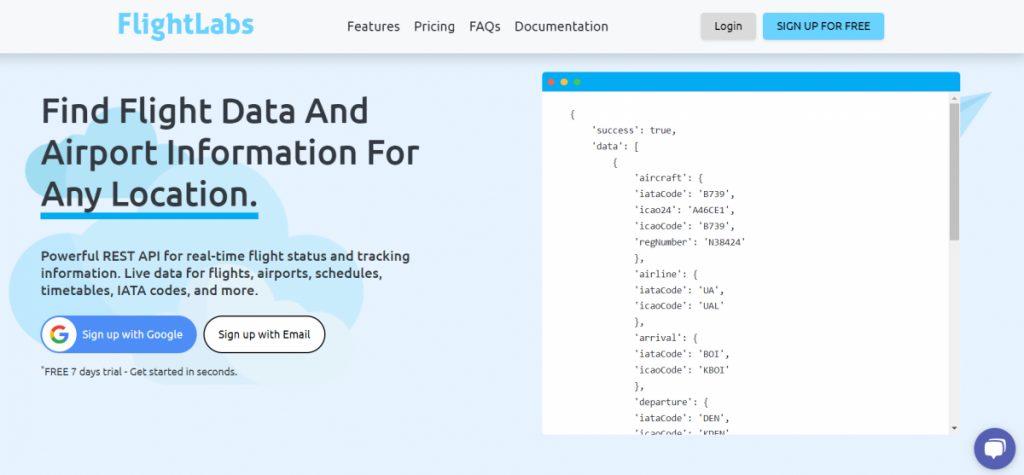In the modern world of technology, APIs (Application Programming Interfaces) have become essential tools for developers to access and utilize various services and data. One such API that is particularly valuable for developers in the travel and aviation industry is the Airport API. This quick guide aims to provide developers with an overview of the Airport API, its functionalities, and how to use it effectively.
What is an Airport API?

An Airport API is a web-based service that allows developers to retrieve information about airports programmatically. It provides a convenient and efficient way to access a vast database of airport-related data without the need for manual lookup or data entry. By integrating the Airport API into their applications or systems, developers can automate processes, enhance user experiences, and provide accurate and up-to-date airport information.
Understanding the Airport API
The Airport API offers a rich set of functionalities that enable developers to retrieve comprehensive airport data. This data includes details such as airport codes, location information, flight schedules, amenities, and more. By leveraging the API, developers can access this information in a structured format and utilize it in their applications to provide valuable services to users.
API Key
To access the Airport API, developers typically need an API key. An API key acts as a unique identifier and authentication mechanism, ensuring secure access to the API. It is obtained by registering with the API provider and following the designated authentication process. The API key helps track usage and prevents unauthorized access, ensuring the integrity of the API.
Retrieving Airport Information
The primary function of the Airport API is to retrieve detailed information about airports worldwide. Developers can query the API using parameters such as airport codes, location names, or geographic coordinates to obtain specific airport data. This information can include airport names, IATA (International Air Transport Association) codes, ICAO (International Civil Aviation Organization) codes, country, city, latitude, longitude, time zone, and more.
Retrieving Flight Schedules
In addition to basic airport information, the Airport API often provides access to flight schedules. By querying the API with parameters such as airport codes or dates, developers can retrieve the departure and arrival schedules for a specific airport. This functionality is particularly useful for applications or systems that require real-time flight information, such as travel planning platforms or flight tracking services.
Retrieving Airport Amenities
Another valuable feature of the Airport API is the ability to retrieve information about airport amenities. Developers can query the API with parameters such as airport codes or location names to obtain details about amenities such as parking facilities, lounges, restaurants, shops, and more. This data can be utilized to enhance user experiences by providing comprehensive airport information and assisting travelers in making informed decisions.
Integration and Implementation
Integrating the Airport API into applications or systems is typically straightforward and involves making HTTP requests to the API endpoints. Developers need to pass the required parameters, including the API key, for authentication and specify the desired data format, such as JSON (JavaScript Object Notation) or XML (eXtensible Markup Language). The API will respond with the requested data, which developers can then process and utilize in their applications.
Supported Response Formats
Airport APIs usually support various response formats to accommodate different programming languages and platforms. JSON and XML are commonly supported formats due to their simplicity and wide adoption. Developers can choose the format that best suits their needs and parse the response accordingly to extract the desired information.
Benefits of Using the Airport APIs
Using an Airport API offers several benefits for developers in the travel and aviation industry:
- Efficiency and Automation: The Airport APIs allows developers to automate the retrieval of airport information, eliminating the need for manual lookup or data entry. This saves time, reduces errors, and enhances overall efficiency.
- Accurate and Up-to-Date Data: By relying on the Airport API, developers can access a comprehensive and regularly updated database of airport information. This ensures that the data provided to users is accurate and up-to-date, enhancing the reliability of applications or systems.
- Enhanced User Experiences: By leveraging the Airport API’s functionalities, developers can provide users with valuable services such as real-time flight information, airport amenities, and more. This enhances user experiences and assists travelers in making informed decisions.
- Cost-Effectiveness: Integrating an Airport APIs into applications or systems provides a cost-effective solution compared to developing and maintaining an in-house airport database. The API provider takes care of data management, updates, and infrastructure, allowing developers to focus on their core competencies.
To make use of it, you must first:

- Go to GoFlightLabs API and simply click on the button “Sign-Up” to start using the tool.
- After signing up in GoFlightLabs API, you’ll be able to use Free Trial.
Read more: Best ip geolocation api tips to use it
Conclusion
The Airport APIs is a valuable resource for developers in the travel and aviation industry, providing access to comprehensive airport-related data. By integrating the API into their applications or systems, developers can automate processes, enhance user experiences, and provide accurate and up-to-date airport information. The straightforward implementation and support for different response formats make the Airport APIs accessible to a wide range of developers. With the Airport API, developers can create innovative applications and services that cater to the needs of travelers worldwide.

